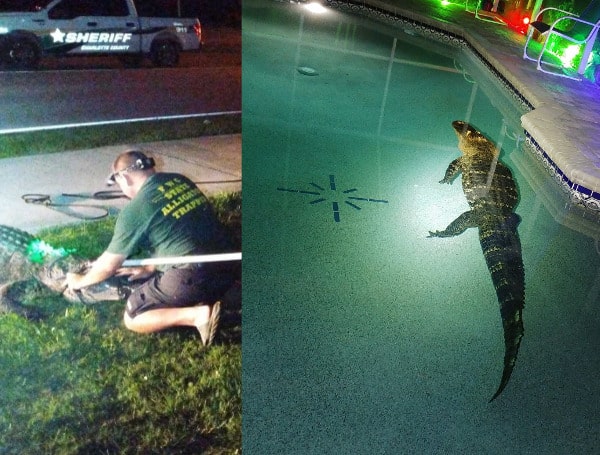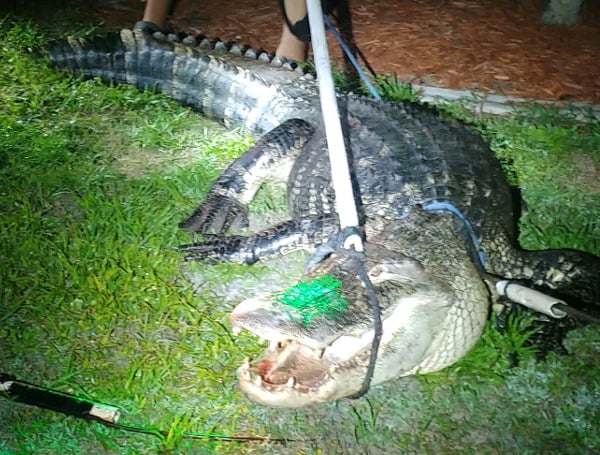Always check your pool before diving in!
A Deep Creek, Florida, family was awakened Tuesday by some loud noises on their lanai and came out to find this alligator relaxing in their pool.
According to Charlotte County Sheriff’s Office, the gator was 10’11” and weighed over 550lbs.
Deputies say he tore through the screen to get to the nice, cool water.
Florida’s state reptile, the American alligator, is a conservation success story. Florida has a healthy and stable alligator population, which is estimated at 1.3 million alligators of every size. They are found in freshwater lakes, ponds, swamps, and slow-moving rivers in all 67 counties in Florida. In this case a swimming pool.
While serious injuries caused by alligators are rare in Florida, the FWC offers the following tips about how to safely co-exist with them:
- Keep a safe distance if you see an alligator and never feed one. When fed, alligators can lose their natural wariness and instead learn to associate people with the availability of food.
- Swim only in designated swimming areas during daylight hours. Alligators are most active between dusk and dawn.
- Keep pets on a leash and away from the water’s edge and never let them swim in fresh or brackish water. Pets often resemble alligators’ natural prey.
- Call the FWC’s Nuisance Alligator Hotline at 866-FWC-GATOR (866-392–4286) if you believe an alligator poses a threat to people, pets or property and the FWC will dispatch a contracted nuisance alligator trapper to resolve the situation. The FWC places the highest priority on public safety and administers a Statewide Nuisance Alligator Program (SNAP) to proactively address alligator threats in developed areas, while conserving alligators in areas where they naturally occur.
- Find more resources about living with alligators and Spanish translation information tools at MyFWC.com/Alligator.
Visit Tampafp.com for Politics, Tampa Area Local News, Sports, and National Headlines. Support journalism by clicking here to our GiveSendGo or sign up for our free newsletter by clicking here.
Android Users, Click Here To Download The Free Press App And Never Miss A Story. Follow Us On Facebook Here Or Twitter Here.


